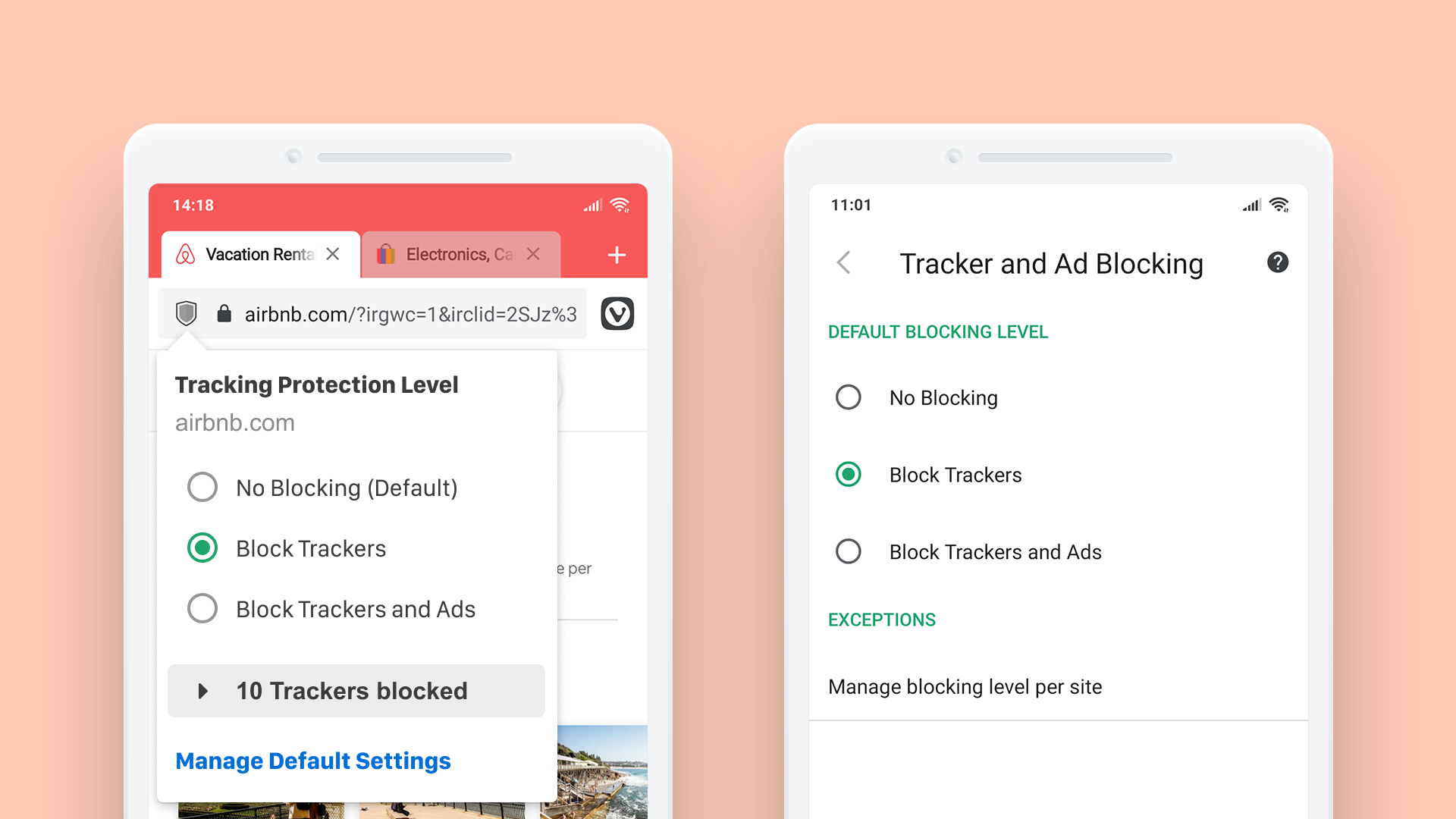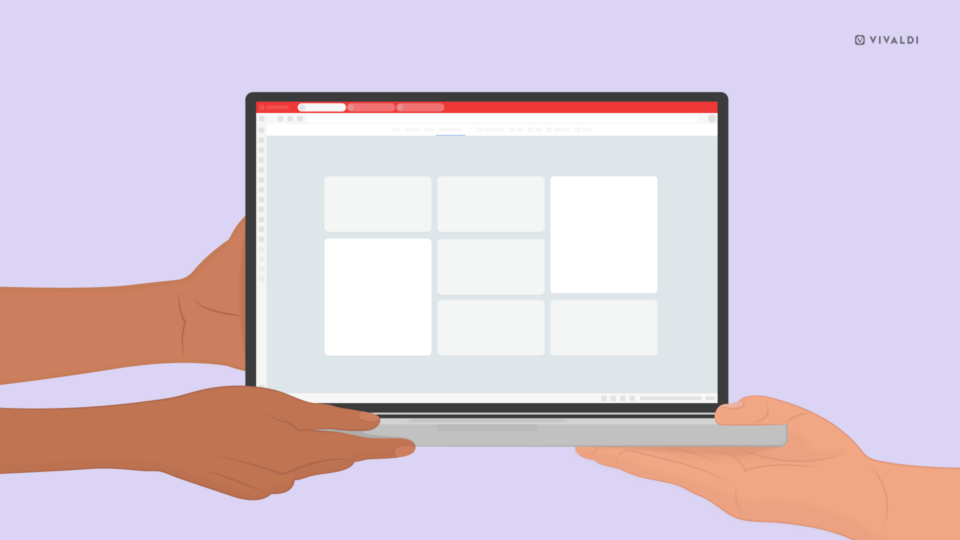
Read this article in Español, 日本語.
If you’ve been with us for a while, you’ll know that an Ad blocker has not exactly been on our roadmap.
If anything, we’ve often said that ad blockers stop legitimate websites from generating revenue, and we have encouraged you to use them mindfully.
Yet we added an ad blocker to Vivaldi browser on both desktop and Android.
This is how we got here.
From Tracker blocker to Ad blocker
It all started while we were building Vivaldi’s Tracker blocker.
The EasyPrivacy list, which it supports in addition to DuckDuckGo’s Tracker Radar-powered blocklist, requires implementing most of the capabilities of an ad blocker. Essentially, list-based tracker blocking and ad blocking technology are the same thing.
However, even with the tech in place, we could have stopped there and not offered the option to block ads in our browsers. But as work was progressing, two things happened.
First, Google decided to push on with discontinuing APIs used by several content blockers from the extension manifest v3. At the time, we made a promise to find a solution.
Keeping support for the affected extensions (as with anything that gets discontinued in Chromium) would have been hard. Google usually removes most of the code a discontinued feature depends on and refactors anything that code relies on. So after a few versions, you end up with a patch that’s tough to apply every time.
Second, when we released Vivaldi for Android Beta last year, we heard time and time again that ad blocker is imperative on browsers for Android. Ads increase page load times and eat up precious data. An ad blocker is a must if you have a limited data plan.
With the technology for Ad blocker in place, the demand for it on Android, and the team looking for a solution to Manifest v3, it made sense to go ahead and expose the controls for Ad blocker.
Here are a few more reasons why we introduced Ad blocker to Vivaldi browser.
Extensions aren’t always the best solution
Many of you are already using ad blockers in your browser in the form of extensions but would prefer something maintained by us. Most extensions have good intentions – and extensions are overall a good thing – but we know that native is better. Extensions can have conflicts with each other, not to mention that some can harm your privacy and security.
Too many ads use tracker technology
Many online ads use the same technology as trackers. They rely on snippets of code that can be easily exploited to gain access to sensitive user information. When we first started testing Tracker blocker in Vivaldi browser, we noticed it was blocking many ads – inevitable, considering their tracking nature.
Ads can act as malware
Websites that display ads rarely have full control over the advertisements they host. Ads are pushed to them by ad publishers, and websites cannot ensure that they are safe. In fact, you can get malware through ads hosted on perfectly trusted websites.
All this puts everyone in a tight spot.

How to help websites still generate revenue
A vast majority of websites exist thanks to online advertising. Millions of websites, from tiny blogs to huge publications, depend on advertising revenue in order to operate.
Many sites you visit on a daily basis will suffer once you turn on ad blocking in your browser .
So let’s do this – put yourself in the shoes of your favorite websites. No doubt, you want them to keep producing your favorite content. You don’t want to stop them from generating revenue.
Thankfully, there are ways to do that.
✔️ Support sites you regularly visit by donating directly to them.
✔️ Allow ads from websites you trust. You needn’t choose a single blanket setting for all sites (though of course, you can). By using the shield icon in the address bar, you can adjust this on a site by site basis. Check websites’ privacy policies for how they work with third parties. Some sites ask ad blocker users to create an account or subscribe to unlock content.
✔️ Keep in mind that for many users the Tracker blocker will give enough protection. It will prevent tracking as well as the worst kind of ads – the tracking ads. At the same time, it will allow sites to generate revenue and stay in the game. You can select between “No Blocking”, “Block Trackers” or “Block Trackers and Ads” in Settings → Privacy.
One of our users put this pretty well for us:
Today I wanted to take a bit of my time to thank you all at Vivaldi for changing your mind about ad blocking. I know you’ve been reluctant about it, that you didn’t want to hurt the business of “good websites” with drastic decisions such as blocking ads and trackers. It may not fully please you to change your mind and implement an ad blocking solution, but today it’s unfortunately necessary to at least provide the choice.
@Hexianpeel
And that’s just it. Ultimately, how you want sites to display and what you want sites to know about you should be your choice. Vivaldi is all about making the browser yours. We strongly believe that you should always have the final say.
So how do you feel about ad blocking?


